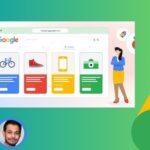
Hands-on .NET Web API Documentation with Swagger/OpenAPI
Hands-on .NET Web API Documentation with Swagger/OpenAPI, available at $69.99, has an average rating of 4.55, with 53 lectures, based on 18 reviews, and has 176 subscribers.
You will learn about Understand OpenAPI/Swagger, their differences, and the need for documentation in Web API. Create an OpenAPI document using Swashbuckle in ASP .NET Web API through a step-by-step approach. Create an OpenAPI document using NSwag in ASP .NET Web API step-by-step. Use Swagger and Swagger UI tools from the OpenAPI community to create a rich API document. Use Web API Analyzers to guide you in including appropriate attributes for achieving complete documentation. Use Web API Conventions to automate and quickly document APIs with minimal efforts. Learn the various approaches available for documenting a Web API including XML comments, data annotations, and so on. Understand the steps involved in documenting API with multiple versions by creating one document per version. This course is ideal for individuals who are Backend Web Developers who build web services that are consumed by internal teams or external 3rd party teams. or Software Architects who assist fellow developers to implement RESTful Web API in their projects. It is particularly useful for Backend Web Developers who build web services that are consumed by internal teams or external 3rd party teams. or Software Architects who assist fellow developers to implement RESTful Web API in their projects.
Enroll now: Hands-on .NET Web API Documentation with Swagger/OpenAPI
Summary
Title: Hands-on .NET Web API Documentation with Swagger/OpenAPI
Price: $69.99
Average Rating: 4.55
Number of Lectures: 53
Number of Published Lectures: 53
Number of Curriculum Items: 53
Number of Published Curriculum Objects: 53
Original Price: $89.99
Quality Status: approved
Status: Live
What You Will Learn
- Understand OpenAPI/Swagger, their differences, and the need for documentation in Web API.
- Create an OpenAPI document using Swashbuckle in ASP .NET Web API through a step-by-step approach.
- Create an OpenAPI document using NSwag in ASP .NET Web API step-by-step.
- Use Swagger and Swagger UI tools from the OpenAPI community to create a rich API document.
- Use Web API Analyzers to guide you in including appropriate attributes for achieving complete documentation.
- Use Web API Conventions to automate and quickly document APIs with minimal efforts.
- Learn the various approaches available for documenting a Web API including XML comments, data annotations, and so on.
- Understand the steps involved in documenting API with multiple versions by creating one document per version.
Who Should Attend
- Backend Web Developers who build web services that are consumed by internal teams or external 3rd party teams.
- Software Architects who assist fellow developers to implement RESTful Web API in their projects.
Target Audiences
- Backend Web Developers who build web services that are consumed by internal teams or external 3rd party teams.
- Software Architects who assist fellow developers to implement RESTful Web API in their projects.
ASP.NET Web APIis one of the hot topics in the ASP.NET world.The usage of Web API is taking the world by storm. Companies such as Netflix, Spotify, Tesla, and Amazon use APIs to connect front-end and back-end functionality at a large scale. What is the key element in such integrations? You need to document your Web APIs so that they can be understood easily by developers. You will be learning about Web API Documentation using Swagger/OpenAPIconcepts from scratch in this course.
My name is Praveen, your instructor for this course! I had worked for about 10 years in Honeywellwherein I’d transitioned from Software Engineer to Senior Software Engineer, Tech Lead, and so on in C# .NET development. For the last 5 years, I’ve been working in the security domain for an access control product based on .NET technology. Moreover, I’ve published about 10 courses in Udemy and taught over 17,630 students on various .NET technologies.
Topics Covered In This Course
-
Understand OpenAPI/Swaggerand the need for documentationin Web API.
-
Learn the various approaches available for documenting a Web API including XML comments, data annotations, and so on.
-
Use Swagger and Swagger UI tools from the OpenAPI community to create a rich API document.
-
Create an OpenAPI document using Swashbuckle in ASP.NET Web API.
-
Create an OpenAPI document using NSwagin ASP.NET Web API.
-
Use Web API Analyzers to guide you in including appropriate attributes for achieving complete documentation.
-
Use Web API Conventions to automate and quickly document APIs with minimal effort.
-
Understand the steps involved in documenting an API with multiple versions by creating one document per version.
-
and Many More!
More Reasons To Take This Course
-
APIsare consuming the entire world in every field.
-
RESTful APIs are the 1st choiceamong API developers while working with APIs.
-
Get ahead of the curveand learn to document ASP.NET Web APIs with ease.
Uberand Airbnbuse APIs to enhance their product portfolios as well as to remain the top leader in their respective segment.
This course provides over 3 hoursof content along with practice activities. To help you better, it follows a step-by-step approach to documenting an ASP.NET Web API project from scratch.
At The End Of This Course
-
You will know how to document a Web API project in ASP.NET Core using Swagger/OpenAPI from scratch.
Who This Course Is For?
-
Backend Web Developers who build web services that are consumed by internal teams or external 3rd party teams.
-
Software Architects who assist fellow developers to implement RESTful Web API in their projects.
Prerequisite
-
Basic knowledge of building Web API in ASP.NET Core.
-
Basic knowledge of OpenAPI/Swagger Specification.
This course will provide significant knowledge of documenting API for your next RESTful API-related project using Swagger and OpenAPI. You will be certain to use Swashbuckle and NSwag with easeby following a step-by-step approach. You will be confident to instantly apply the ASP.NET Web API documentationtips covered in the course.
Enrollnow to get started.
What Do You Get When You Enroll In This Course?
-
Lifetime access to the course and all future updates to the course content
-
Personalized support and answers to your questions
-
Udemy certificate of completion
-
30-Day 100% money-back guarantee
Course Curriculum
Chapter 1: Course Introduction
Lecture 1: Welcome & About This Course
Lecture 2: Download: Source Code
Lecture 3: Download: Web API Documentation Cheat Sheet
Lecture 4: Important Message About Udemy Reviews
Lecture 5: Recommended: Development Environment
Chapter 2: Getting Started with OpenAPI
Lecture 1: Introduction
Lecture 2: Overview of OpenAPI
Lecture 3: Swagger vs OpenAPI
Lecture 4: Design-first vs Code-first
Lecture 5: OpenAPI Implementations for .NET
Lecture 6: Why Document APIs?
Lecture 7: How to Document APIs?
Lecture 8: Overview of Demo Project
Chapter 3: Creating OpenAPI using Swashbuckle
Lecture 1: Introduction
Lecture 2: Overview of Swashbuckle
Lecture 3: Step 1: Install Swashbuckle
Lecture 4: Step 2: Configure Swashbuckle
Lecture 5: A Note about ApiExplorer
Lecture 6: Overview of Generated OpenAPI Spec
Lecture 7: Step 3: Add SwaggerUI
Lecture 8: Summary
Chapter 4: Adding Documentation using Swashbuckle
Lecture 1: Introduction
Lecture 2: Step 4: Add OpenAPI Metadata
Lecture 3: Step 5: Enable Documentation using XML Comments
Lecture 4: Step 6: Add Documentation using XML Comments
Lecture 5: Step 7: Add Data Annotations
Lecture 6: Handling Compiler Warnings
Lecture 7: Summary
Chapter 5: Creating OpenAPI using NSwag
Lecture 1: Introduction
Lecture 2: Install NSwag
Lecture 3: Configure NSwag
Lecture 4: Add SwaggerUI
Lecture 5: Summary
Chapter 6: Using Web API Analyzers
Lecture 1: Introduction
Lecture 2: What are Web API Analyzers?
Lecture 3: Step 8: Enable Web API Analyzers
Lecture 4: Step 9: Add Annotations as per Warnings
Lecture 5: Summary
Chapter 7: Using Web API Conventions
Lecture 1: Introduction
Lecture 2: What are Web API Conventions?
Lecture 3: Step 10: Applying Web API Conventions
Lecture 4: Step 11: Update Action Names as per Conventions
Lecture 5: Step 12: Create Custom API Conventions
Lecture 6: Attributes vs Conventions: Which One to Use?
Lecture 7: Summary
Chapter 8: Documenting API Versions
Lecture 1: Introduction
Lecture 2: Step 13: Enable API Versioning
Lecture 3: Need for Handling Version During Documentation
Lecture 4: Step 14: Add Support for Multiple Versions
Lecture 5: Step 15: Add Document for Each Version
Lecture 6: Using Generic Version Handler
Lecture 7: Summary
Chapter 9: Course Conclusion
Lecture 1: Bonus Lecture: Recommended Resources
Instructors
-

Praveenkumar Bouna
Cloud Instructor
Rating Distribution
- 1 stars: 0 votes
- 2 stars: 0 votes
- 3 stars: 1 votes
- 4 stars: 6 votes
- 5 stars: 11 votes
Frequently Asked Questions
How long do I have access to the course materials?
You can view and review the lecture materials indefinitely, like an on-demand channel.
Can I take my courses with me wherever I go?
Definitely! If you have an internet connection, courses on Udemy are available on any device at any time. If you don’t have an internet connection, some instructors also let their students download course lectures. That’s up to the instructor though, so make sure you get on their good side!
You may also like
- Digital Marketing Foundation Course
- Google Shopping Ads Digital Marketing Course
- Multi Cloud Infrastructure for beginners
- Master Lead Generation: Grow Subscribers & Sales with Popups
- Complete Copywriting System : write to sell with ease
- Product Positioning Masterclass: Unlock Market Traction
- How to Promote Your Webinar and Get More Attendees?
- Digital Marketing Courses
- Create music with Artificial Intelligence in this new market
- Create CONVERTING UGC Content So Brands Will Pay You More
- Podcast: The top 8 ways to monetize by Podcasting
- TikTok Marketing Mastery: Learn to Grow & Go Viral
- Free Digital Marketing Basics Course in Hindi
- MailChimp Free Mailing Lists: MailChimp Email Marketing
- Automate Digital Marketing & Social Media with Generative AI
- Google Ads MasterClass – All Advanced Features
- Online Course Creator: Create & Sell Online Courses Today!
- Introduction to SEO – Basic Principles of SEO
- Affiliate Marketing For Beginners: Go From Novice To Pro
- Effective Website Planning Made Simple




















